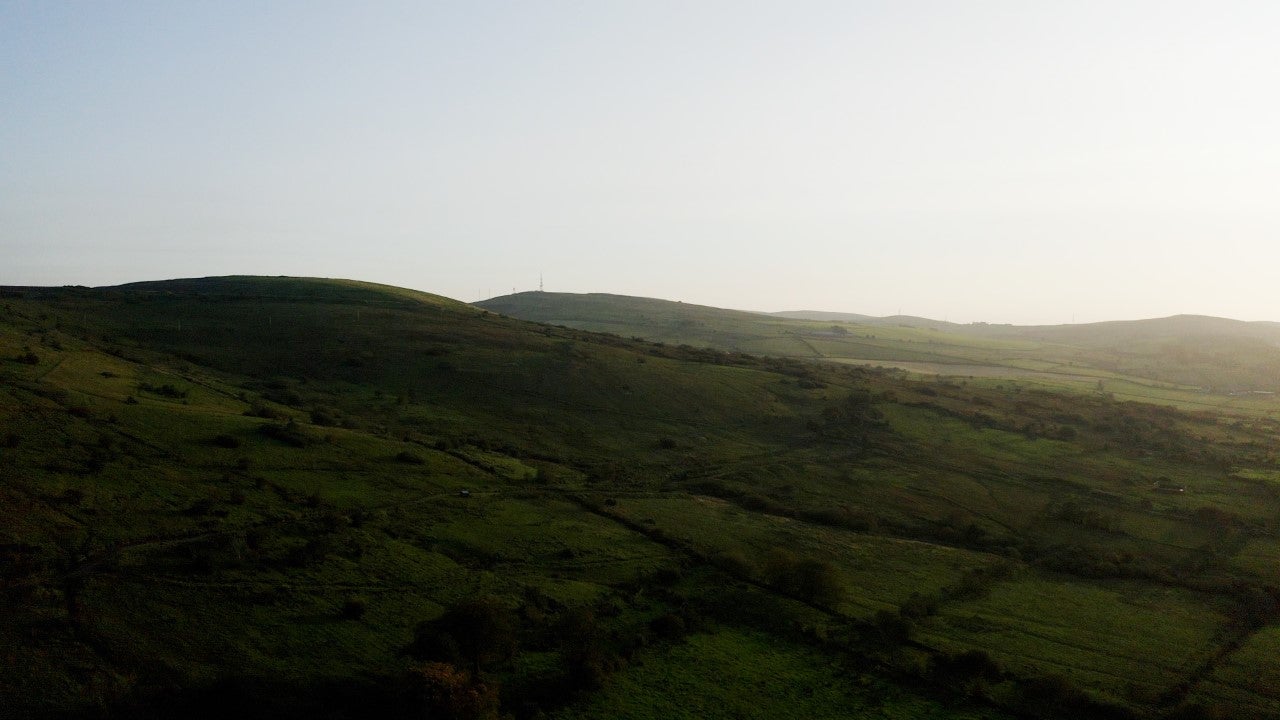New 250-acre native woodland to be created on outskirts of Belfast
Purchase of farmland by Woodland Trust will benefit climate, boost biodiversity and be free to use

A new 250-acre woodland is to be created on what is now largely grassland on the outskirts of Belfast after the Woodland Trust Northern Ireland acquired the land.
The site, next to Cave Hill Country Park, in the Belfast Hills, will see work done to restore existing trees, but the focus is on planting native tree species to sequester carbon and boost biodiversity.
Northern Ireland currently has the lowest tree cover within Europe, with just 8 per cent cover. Of this, just 4 per cent are native trees and only 0.04 per cent is ancient woodland.
At around 13 per cent forest cover in 2015, Britain is one of the least densely forested countries in Europe. This compares with 38 per cent for the EU as a whole and 31 per cent worldwide. The most densely forested country in Europe is Finland, of which 73 per cent is covered with trees.
The trust said when the works are complete the site will be open freely to the public.
Ian McCurley, the director of Woodland Trust Northern Ireland said: “To be able to create woodlands on this scale means more for nature, more for climate change and more for people.
“We need to rapidly increase tree cover to help reach net zero carbon emissions and tackle the declines in wildlife. We want to conserve the land in the Belfast Hills and restore it to a beautiful habitat for people and nature.”
The adjacent Cave Hill Country Park already attracts over 270,000 visitors every year from Belfast and the surrounding areas and the new woodland will link existing pathways across Divis – the tallest mountain in the Belfast hills, at 1,568 feet – and across other parts of the Belfast Hills.
It will also link existing Woodland Trust sites at Carnmoney Hill, Monkstown Wood and Throne Wood, expanding and connecting free outdoor spaces for the local community.

The funding for the project came from Biffa Award, as part of the Landfill Communities Fund, and NIEA (Northern Ireland Environment Agency). The Landfill Communities Fund is a tax credit scheme enabling operators of landfill sites in England and Northern Ireland to contribute money to specific environmental organisations.
Mr McCurley added: “This is an incredible investment, and we are excited about the opportunity to create a new native woodland within a short drive of the population of greater Belfast, Newtownabbey and South Antrim.”
Rachel Maidment, Biffa award grants manager, said the project would “improve existing habitats and create new habitats”.
“It is hugely important that Biffa Award continues to fund projects which seek to restore, protect and enhance habitats for a wide range of wildlife. Through our Partnership Grants Scheme we are able to make significant grants to projects that introduce, conserve or protect our wildlife, paving the way for nature’s recovery on a large scale.”
The DUP’s Agriculture, Environment & Rural Affairs minister, Edwin Poots said: “My department is delighted to provide significant financial support to enable the Woodland Trust to deliver this exciting project in the Belfast Hills.
“It will protect and enhance important wildlife habitats, create valuable new woodland through an extensive programme of native tree planting as part of the Forests for Our Future initiative and facilitate public access to an impressive landscape that is literally on the doorstep of Belfast and surrounding towns.”
The Woodland Trust is committed to planting 50 million more trees in the UK by 2025 to help tackle the climate crisis.
Join our commenting forum
Join thought-provoking conversations, follow other Independent readers and see their replies
Comments
Bookmark popover
Removed from bookmarks